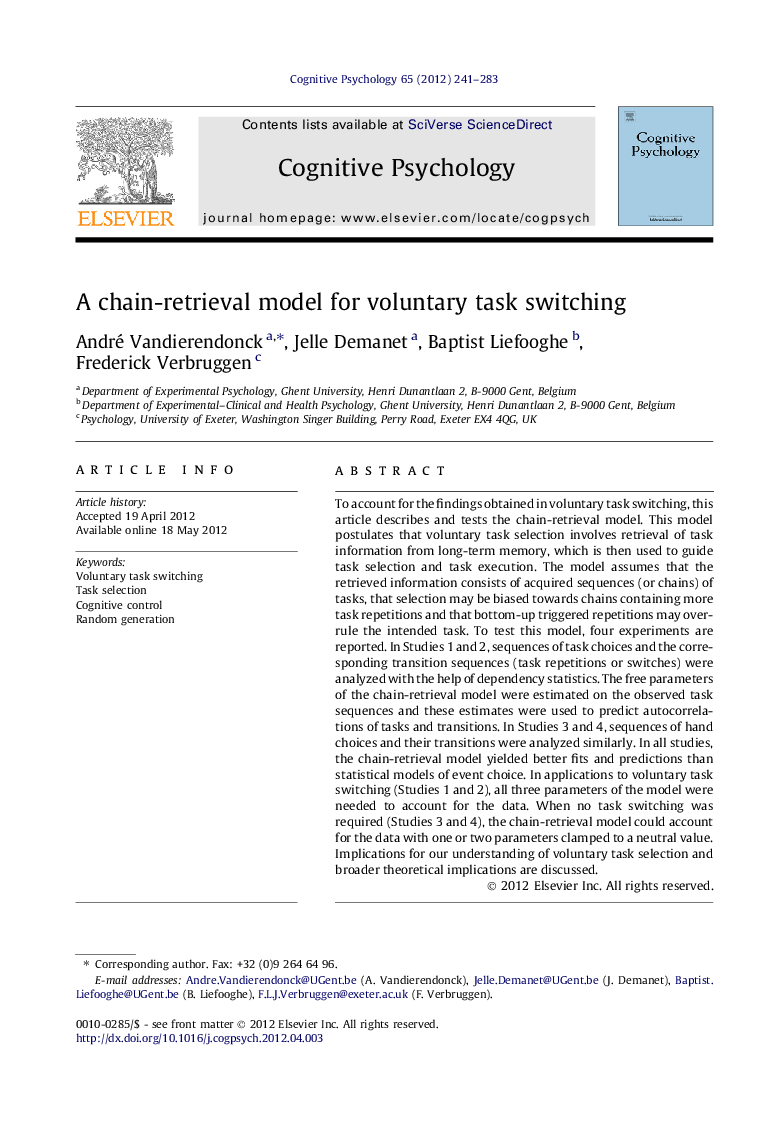| Article ID | Journal | Published Year | Pages | File Type |
|---|---|---|---|---|
| 916942 | Cognitive Psychology | 2012 | 43 Pages |
To account for the findings obtained in voluntary task switching, this article describes and tests the chain-retrieval model. This model postulates that voluntary task selection involves retrieval of task information from long-term memory, which is then used to guide task selection and task execution. The model assumes that the retrieved information consists of acquired sequences (or chains) of tasks, that selection may be biased towards chains containing more task repetitions and that bottom-up triggered repetitions may overrule the intended task. To test this model, four experiments are reported. In Studies 1 and 2, sequences of task choices and the corresponding transition sequences (task repetitions or switches) were analyzed with the help of dependency statistics. The free parameters of the chain-retrieval model were estimated on the observed task sequences and these estimates were used to predict autocorrelations of tasks and transitions. In Studies 3 and 4, sequences of hand choices and their transitions were analyzed similarly. In all studies, the chain-retrieval model yielded better fits and predictions than statistical models of event choice. In applications to voluntary task switching (Studies 1 and 2), all three parameters of the model were needed to account for the data. When no task switching was required (Studies 3 and 4), the chain-retrieval model could account for the data with one or two parameters clamped to a neutral value. Implications for our understanding of voluntary task selection and broader theoretical implications are discussed.
► A formal model of task selection in voluntary task switching is presented and tested. ► Model assumes task chain retrieval from long-term memory to guide task selection. ► Model shows accounts for task repetition bias and pattern of task choices. ► All assumptions of the model are needed to account for the data. ► A simplified version of the model accounts for random generation data.
